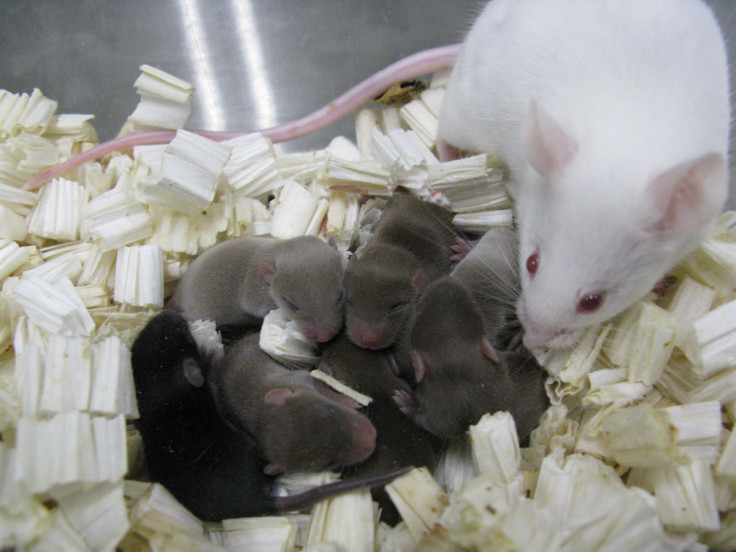Space sperm: Mice born from sperm preserved on the ISS pave way for human reproduction in space
The findings could have implications for humans if they ended up living in space permanently.

Scientists have announced the birth of healthy baby mice conceived from sperm preserved on the International Space Station (ISS) for nine months. The experiment suggests that while space radiation can damage sperm DNA, it may not stop mammalian species from producing viable offspring.
Published in PNAS, the study evokes the possibility that humans may one day live permanently in space – or at least engage in much longer space journeys than today.
The problem is that any prolonged stay in space has consequences for the body of humans and animals. It's for this reason that NASA scientists are now investigating how space time impacts human health, in order to prepare adequately for future missions to Mars.
In particular, scientists know that radiation on the ISS is more than 100 times stronger than on our planet. This has the potential to cause DNA damage in mammalian cells and gametes.
In this new research, the scientists didn't study humans directly, but their findings could have important implications for human health in the future.
"Our main subject is domestic animal reproduction. In this field, many animals have already been born from preserved spermatozoa – freezed-dried sperm. In Japan for example, 100% of our milk cows have been born from preserved sperm for economic and breeding reasons. If human lived in space for very long years, then they will want to eat beef. The purpose of our study is to demonstrate that there is a possibility to breed these domestic animals in space," the study's lead author Teruhiko Wakayama, from the University of Yamanashi (Japan) told IBTimes UK.
"Assisted reproductive technology (ART) will also likely be used to produce humans in space habitats in the future, and our findings may one day probably help the infertile couples that will end up living on large space stations."
Sperm damage but healthy pups
To investigate the influences of space radiation in domestic mammalian species, the scientists conducted experiments with mice. They decided to freeze-dry mouse sperm, a technique which allows to store the sperm at room temperature for up to two years and in a freezer almost indefinitely. This sperm can later be used in in-vito fertilisation to produce offspring.
In this study, the freeze-dried sperm was sent to the ISS and stored there for 288 days, between August 2013 and March 2014.
"I think this duration is absolutely not enough to know exactly how prolonged radiation can affect reproduction. However, so far, this kind of research had never been performed before so it gives us a first idea of what to expect," Wakayama said.
Following their return to Earth, the sperm samples were compared with control samples preserved on Earth during the same period under similar conditions. The researchers found that the space samples showed evidence of slightly increased DNA damage, compared with the control samples.

Next, they used both types of samples to conduct in vitro fertilisation, with the resulting embryos transferred into healthy female mice.
The scientists report that the mean birth rates of mouse pups derived from space-preserved sperm samples were comparable to those of pups derived from control samples. Furthermore, a rigorous analysis of the animals' genomes revealed only minor differences from control pups, and the pups from space-preserved sperm developed into adults with normal fertility.
These findings suggest that the DNA damage observed in the space-preserved sperm samples was largely repaired in embryos after fertilisation. It appears that space radiation does cause DNA damage in the sperm, but do not affect fertility or health of future offspring.
More research will be needed to back this up but the scientists have no plans to do the same experiments with human gametes. However, they also want to investigate how microgravity in space impacts reproduction.
"We just want to know whether mammalian reproduction in space is possible or not, using mice. Now, we want to bring mouse embryos to ISS, and culture them under microgravity. This future study will aim to find out whether mammalian embryo can develop without gravity or not," Wakayama concluded.
© Copyright IBTimes 2025. All rights reserved.






















